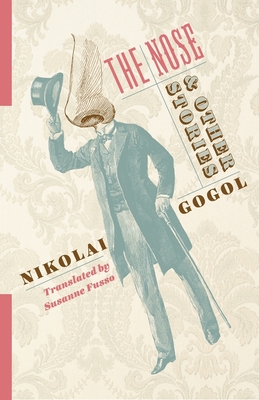Hardcover, 368 pages
English language
Published May 12, 2020 by Columbia University Press.

Hardcover, 368 pages
English language
Published May 12, 2020 by Columbia University Press.
Nikolai Gogol's novel Dead Souls and play The Government Inspector revolutionized Russian literature and continue to entertain generations of readers around the world. Yet Gogol's peculiar genius comes through most powerfully in his short stories. By turns--or at once--funny, terrifying, and profound, the tales collected in The Nose and Other Stories are among the greatest achievements of world literature.
These stories showcase Gogol's vivid, haunting imagination: an encounter with evil in a darkened church, a downtrodden clerk who dreams only of a new overcoat, a nose that falls off a face and reappears around town on its own, outranking its former owner. Written between 1831 and 1842, they span the colorful setting of rural Ukraine to the unforgiving urban landscape of St. Petersburg to the ancient labyrinth of Rome. Yet they share Gogol's characteristic obsessions--city crowds, bureaucratic hierarchy and irrationality, the devil in disguise--and a constant undercurrent of the absurd. …
Nikolai Gogol's novel Dead Souls and play The Government Inspector revolutionized Russian literature and continue to entertain generations of readers around the world. Yet Gogol's peculiar genius comes through most powerfully in his short stories. By turns--or at once--funny, terrifying, and profound, the tales collected in The Nose and Other Stories are among the greatest achievements of world literature.
These stories showcase Gogol's vivid, haunting imagination: an encounter with evil in a darkened church, a downtrodden clerk who dreams only of a new overcoat, a nose that falls off a face and reappears around town on its own, outranking its former owner. Written between 1831 and 1842, they span the colorful setting of rural Ukraine to the unforgiving urban landscape of St. Petersburg to the ancient labyrinth of Rome. Yet they share Gogol's characteristic obsessions--city crowds, bureaucratic hierarchy and irrationality, the devil in disguise--and a constant undercurrent of the absurd. Susanne Fusso's translations pay careful attention to the strangeness and wonder of Gogol's style, preserving the inimitable humor and oddity of his language. The Nose and Other Stories reveals why Russian writers from Dostoevsky to Nabokov have returned to Gogol as the cornerstone of their unparalleled literary tradition.